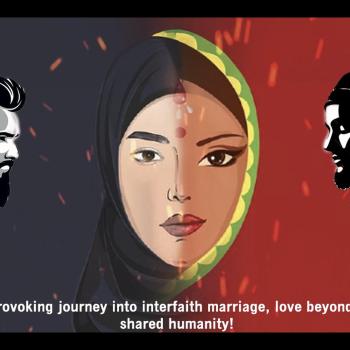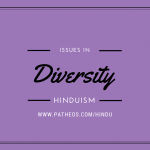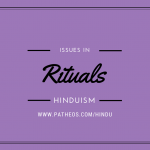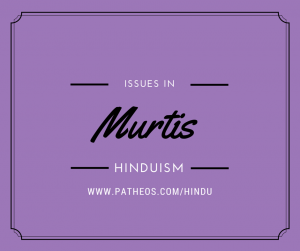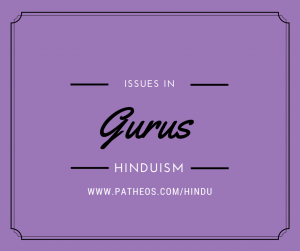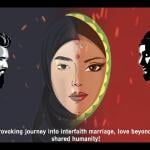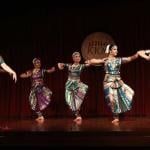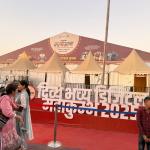If there’s one thing about Hinduism that clashes with American values, it’s the caste system.
Our ideal is the belief that “all men are created equal.” I say ideal because we have never and can never live up to it, but we aim to structure society as though it’s true. We try to ensure that everyone has access to the same quality of education, even though we’ve never been able to completely equalize the playing field: children of the rich almost always get a better education than children of the poor, with a few notable cases of class mobility thrown in to make it look possible.
A lot of people who would otherwise have been interested in Hinduism either end up in Buddhism or go back to their birth religions due to this one issue alone. Caste is literally abhorrent to Americans. We haven’t eliminated racism, but we consider that a flaw. As a society, we are (or hope we are) working toward eliminating discrimination. Caste seems to institutionalize discrimination.
Americans live with tension between the ideal that we’re all equals and the reality that the some people in society can avoid punishment for killing people, while other people in society can be gunned down or choked for talking back to a police officer. The law, it seems, is only for the middle class. The rich are above it and the poor don’t have access to due process.
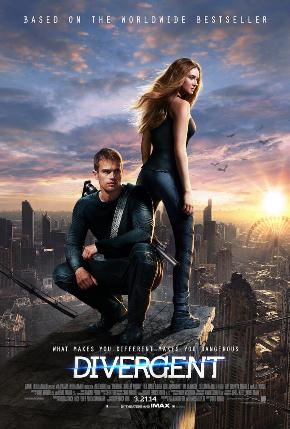
I watched Divergent with my family last night, and I saw a caste system as imagined by American author Veronica Roth. I haven’t read the books, though one of my teens has read the first in the trilogy and he helped me fill in a little of what I missed.
A few things stood out right away:
- In Divergent, the castes are called Factions. By definition, factions exist in conflict with one another. There can be ceasefires, but not lasting peace between factions.
- In true American style, you can choose your faction. In equally true American style, this choice is confusing. Do you choose the faction you were born into (whose way of life you already know) or the faction you got on your aptitude test? Shouldn’t you have the aptitude test sooner so you get more time to consider your decision? Should you really be making this decision at 16 without talking it over with a guidance counselor or someone?
For some reason, in post-apocalyptic Chicago, you can be killed if people find out that you’re divergent — that is, if you could have fit into more than one faction. This part, though it was the premise of the entire plot, made no sense to me: why let kids choose a faction if you’re not allowed to have the potential to fit into more than one faction? Obviously you’d become someone who was able to fit into the faction you were initiated into and you already know how to fit into the faction you were born into. My confusion might make it sound as though I didn’t enjoy the movie, but I actually did. Tris was a stronger female protagonist than Katniss and I think I preferred Divergent to the Hunger Games.
A few years ago I watched a documentary called Pururambo, which was about a tribe in New Guinea whose lifestyle and technology are similar to what they probably were during the Stone Age. I noticed that all the men did the same work, and all the women did the same work.
That’s when I realized that an idea like caste is necessary to building complex civilizations. If the smart keep our wisdom and the strong defend us and everyone else grows crops or makes things, humans can stop living as hunter-gatherers and start having more permanent settlements. Conflict arises because some groups are going to think they’re better than (instead of just different from) others, and because your aptitude might not align with the caste you were raised in. These themes were as present in the Mahabharata thousands of years ago as they are in Divergent.
India has two systems that both get called “caste” in English: the varna system dates back thousands of years and is what I’m discussing here. Jati arose later as occupations became more specialized. The varnas are:
- Brahmins, who correspond roughly with the clergy in medieval Europe
- Kshatriya, who correspond to nobility (kings and knights)
- Vaishyas (farmers, herders, or businessmen), who correspond to the commoners/peasants and merchant class
- Shudras (laborers), who correspond to servants
The factions in Divergent are:
- Abnegation, who are supposed to be selfless
- Dauntless, who are supposed to be fearless
- Erudite, who are supposed to be intelligent
- Amity, who are supposed to be peaceful
- Candor, who are supposed to be honest
The idea behind the factions is that human nature causes societal problems and each faction has a different idea how to solve the problems. If only humans could stop being selfish/stop being cowards/stop being stupid/stop fighting/stop lying we could build a perfect society.
Unlike the kshatriya or knights, but like Plato’s guardians, the Dauntless are the warriors but not the rulers. And, like Plato’s philosopher-king, some of the Erudite believe the most intelligent should be the ruling caste. It’s interesting that Plato imagined this concept as the foundation of a just society and Veronica Roth imagined it as the result of humans trying to salvage some semblance of order after the complete breakdown of society.
When I studied psychology in college, I was taught that babies are born a “blank slate” and that everything they’re exposed to creates who they become. Once I became a mother, it was impossible to believe. Babies definitely come into the world with their own personalities. If we lived in the world of Divergent, my son who had read the book and filled me in on what I’d missed would end up in Erudite and my son who was doing parkour off the living room furniture while we were trying to watch the movie would end up in Dauntless. This is not something they could choose but something they’re born with: my bookish son couldn’t choose to be Dauntless anymore than my wrestling-fanatic gamer son could choose to be Erudite.
I do believe that humans are different in temperament and aptitude, and that we thrive when we find work that fits who we are. I don’t believe that we necessarily have the same temperament and aptitude as our parents (although it’s lucky if we do because our parents can nurture our talents better if they understand or at least appreciate them).
The problem with the caste/varna system is that it locks people into a place they may not fit, which actually goes against its purpose in the first place.



